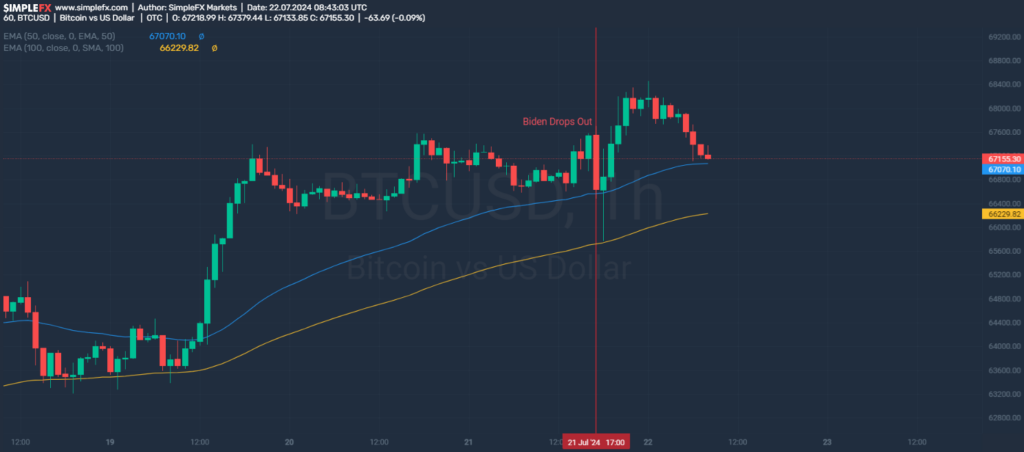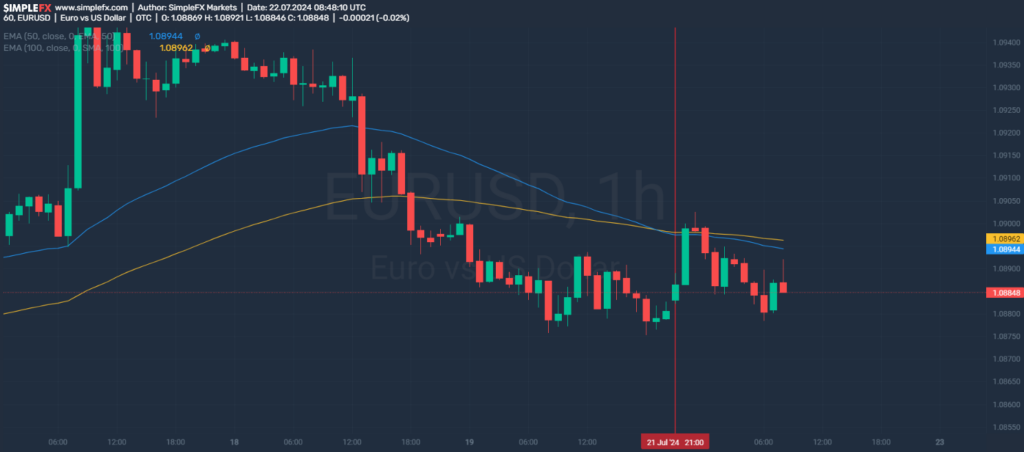In a surprising turn of events, President Joe Biden announced his withdrawal from the 2024 presidential race on Sunday, July 21. This decision has significant implications for the upcoming election, creating a new dynamic in the political landscape.
Joe Biden’s Decision to Withdraw
Joe Biden’s decision to withdraw from the 2024 race has reshaped the Democratic campaign strategy. He cited various challenges and a desire to support Vice President Kamala Harris in her bid for the presidency.
Biden’s Legacy and Support for Harris
Despite stepping down, Biden remains committed to his party’s success. He has endorsed Kamala Harris, his vice president, to take his place as the Democratic nominee. Harris, who has also received support from notable figures such as Bill and Hillary Clinton, is poised to lead the Democratic ticket. Known for her strong stance on issues like criminal justice reform, healthcare, and women’s rights, Harris brings a wealth of experience and dedication to her campaign.
Despite her achievements, Harris has faced criticism for not establishing a more distinct role within the Biden administration. Her approval ratings have been consistently low, raising concerns about her ability to compete effectively against Donald Trump in a high-stakes election. Initially, Harris supported Biden after their debates, but as his support waned, the focus has increasingly shifted to her as the potential Democratic nominee.
The Republican Candidate: Donald Trump
While the Democratic race has seen a significant change, the Republican candidate remains the same. Donald Trump, the former president, continues his campaign to return to the White House. Known for his conservative policies, Trump remains a central figure in American politics.
Trump’s Platform
Trump’s campaign focuses on key issues such as immigration reform, economic growth, and national security. Additionally, he advocates for tax cuts and supports the cryptocurrency sector. Trump aims to defend the right to self-custody of crypto assets and will be speaking at the Bitcoin conference in Nashville on July 27. His policies and rhetoric continue to resonate with a significant portion of the American electorate, making him a formidable candidate in the upcoming election.
Party Procedures and Market Reactions
Although Biden secured victory in the Democratic primaries earlier this year, he would only have been officially nominated as the party’s candidate at the Democratic National Convention in Chicago from August 19-22. Just a month before the convention, his withdrawal presents unprecedented challenges for the party. Without a formal mechanism to replace a presumptive nominee, Biden’s voluntary exit aims to streamline the selection process for his successor, but the path forward remains uncertain and complex.
Until the convention, Biden’s endorsement of Harris and support from other prominent Democrats, such as the Clintons, will help solidify her position as the likely nominee. The Republican National Committee (RNC) follows similar procedures should a need arise, though Trump remains their nominee.
Market Reactions to Biden’s Withdrawal
Biden’s withdrawal announcement had immediate effects on financial markets.
BTC’s reaction to Biden’s resignation.
The cryptocurrency market, particularly Bitcoin (BTC), reacted with a noticeable surge, reflecting uncertainty and potential shifts in economic policy. This initial spike was followed by corrections as the market stabilized. The rise in Bitcoin’s value could be attributed to the perception that Democrats are generally less favorable towards cryptocurrency, and the ensuing chaos within this party created a more favorable environment for the crypto market.
The currency market reacts mildly, taking into account how important such a situation is.
The EUR/USD exchange rate experienced a slight increase, which also corrected itself shortly after.
State Laws Regarding Candidate Withdrawal
The rules and regulations regarding candidate withdrawal vary from state to state, complicating updating ballots.
Wisconsin and Nevada Regulations
In Wisconsin, once a candidate is on the ballot, they cannot withdraw for any reason other than death. Similarly, in Nevada, no changes can be made to the ballot after the fourth Friday in June unless the candidate dies or is declared mentally incompetent.
Georgia and Texas Regulations
In Georgia, if a candidate withdraws less than 60 days before the election, their name remains on the ballot, but votes for them will not be counted. Texas allows nominees to withdraw until the 74th day before the election, whereas states like South Carolina do not permit withdrawal for political reasons.
Applicability to Biden’s Situation
However, these regulations may not apply to Biden’s case since the official Democratic nominee will be chosen at the Democratic National Convention in Chicago in August 2024. This timing allows the party to make necessary adjustments before the general election.
Conclusion
Joe Biden’s unexpected withdrawal has reshaped the 2024 presidential race, introducing new dynamics and challenges. With Kamala Harris potentially stepping up as the Democratic nominee and Donald Trump continuing his campaign, the election promises to be highly consequential. Voters and analysts will closely monitor developments as both parties navigate this unprecedented situation. The political landscape is set for a dramatic and unpredictable election season, with significant implications for the future of the United States.
The information provided on this website does not, and is not intended to, constitute investment advice; all information, content, and materials available on this site are for general informational purposes only.



